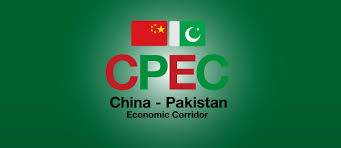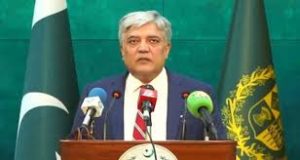Four CPEC SEZs to create 1.47 million jobs, boost industrialist growth

Islamabad: The four Special Economic Zones (SEZs), work on which is continuing at full swing, would create as many as 1.47 million jobs besides playing an important role in promoting local industry to lead the country towards sustainable economic growth.
“The four SEZs including Rashakai M-1 Nowshera; Dhabeji Thatta; Allama Iqbal Industrial City Faisalabad and Bostan Balochistan would create around 475,000 direct and 1,000,000 indirect jobs all across the country,” senior official of Board of Investment (BoI) told APP here Monday.
The official said these SEZ, which are part of China Pakistan Economic Corridor (CPEC) would promote overall industrial growth in the country, adding that development of these four zones was top priority of the government.
He was of the view that Pak-China industrial cooperation would make Pakistan a manufacturing hub in the region while the establishment of industrial zones would create vast investment opportunities for local industrialists.
The 1000 acre Rashkai Economic Zone has attracted at more than 2,000 domestic and foreign investments in different sectors of economy, hence promote rapid industrialization.
He said that the zone would be developed in three phases and as per the plan 247 acres of land would be developed in the first phase, 355 acres in the second phase and 399 acres in the third phase.
Likewise, the federal government would provide 210 MW electricity to the zone in three phases while it had also earmarked Rs 1203 million for gas for this zone.
The zone will provide employment to 80% locals, he said adding that Rashakai has the potential to become a hub of economic activity.
He said Rashakai Special Economic Zone is connected to all the provinces of Pakistan through airports, dry ports, railway stations, motorways and highways. The zone is located at the confluence of the five major districts of KPK, Nowshera, Mardan and Swabi, Charsadda and Peshawar.
He said that there is fertile land in the adjoining districts, which is suitable for growing a variety of cash crops and vegetables. The SEZ would cover more than 400 industries, including garments and textile products, home appliances, general commercial goods, electronics and electrical appliances, automobiles and mechanical equipment.
Meanwhile, talking to APP the Adviser to Commerce and Investment, Abdul Razak Dawood said the Special Economic Zones (SEZs) was a milestone for economic and industrial development in Pakistan.
The Special Economic Zone would pave the way for foreign investment, setting a milestone in industrial modernization and diversification in the country, the Adviser said.
He said that the Rashakai Special Economic Zone (SEZ) would set a new direction for modern industrialization in Pakistan and bring huge Foreign Direct Investment (FDI) in the country.
Replying to a question on shift of industries from China to Pakistan, he said that “We are looking to welcome the Chinese industries in our SEZs to Joint Venture (JVs) with local investors and also share the mutual experience for benefiting the local industries.
He said the government was prioritising development of special economic zones (SEZs) for attracting foreign direct investment (FDI) and transfer of technology into the country.
“The SEZs are primarily focused on industrialization that result in export promotion, import substitution, transfer of technologies and employment generation, which are the primary targets of our government as well,” he said.
The advisor said the establishment of SEZs was critical to resolving balance of payment issues as ”we tend to give priority to enterprises which are involved in export generation or import substitution” he said.
He said that Rashakai SEZ is the flagship project of CPEC and its success will further strengthen Industrial Cooperation between Pakistan and China.
He said the development of Rashakai SEZ had a huge strategic implication, because it is closer to resource rich Central Asian Republics (CARs) and also plays a role for economic integration of the region.
He said that all of these SEZs would have far-reaching socio-economic impact in the region by attracting more investment, spurring industrialization, creating employment in the industry and ensuring export led-growth.
He said that Pakistan’s proximity with China would allow these SEZs to foster economic interdependence for mutual economic advantage.
Replying to another question, he said that Rashakai SEZ held a unique competitive advantage due to its proximity to the first juncture of CPEC route, and significant resource and manufacturing base in the region.
Replying to another question about the most priority sector for future investment in Pakistan, he said that textiles value addition, Information Technology, Logistic, Tourism and housing are the major sectors for the government to bring foreign investment in these areas.





